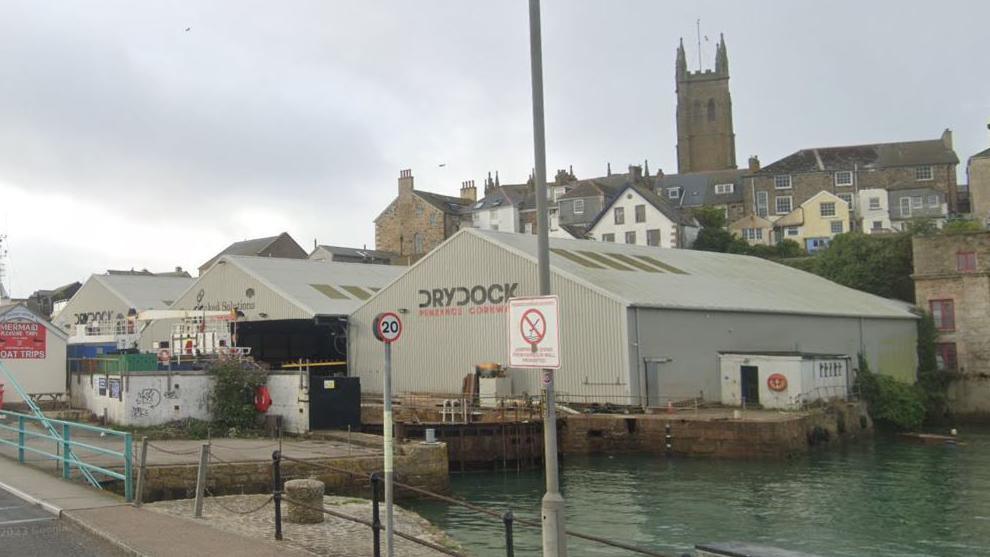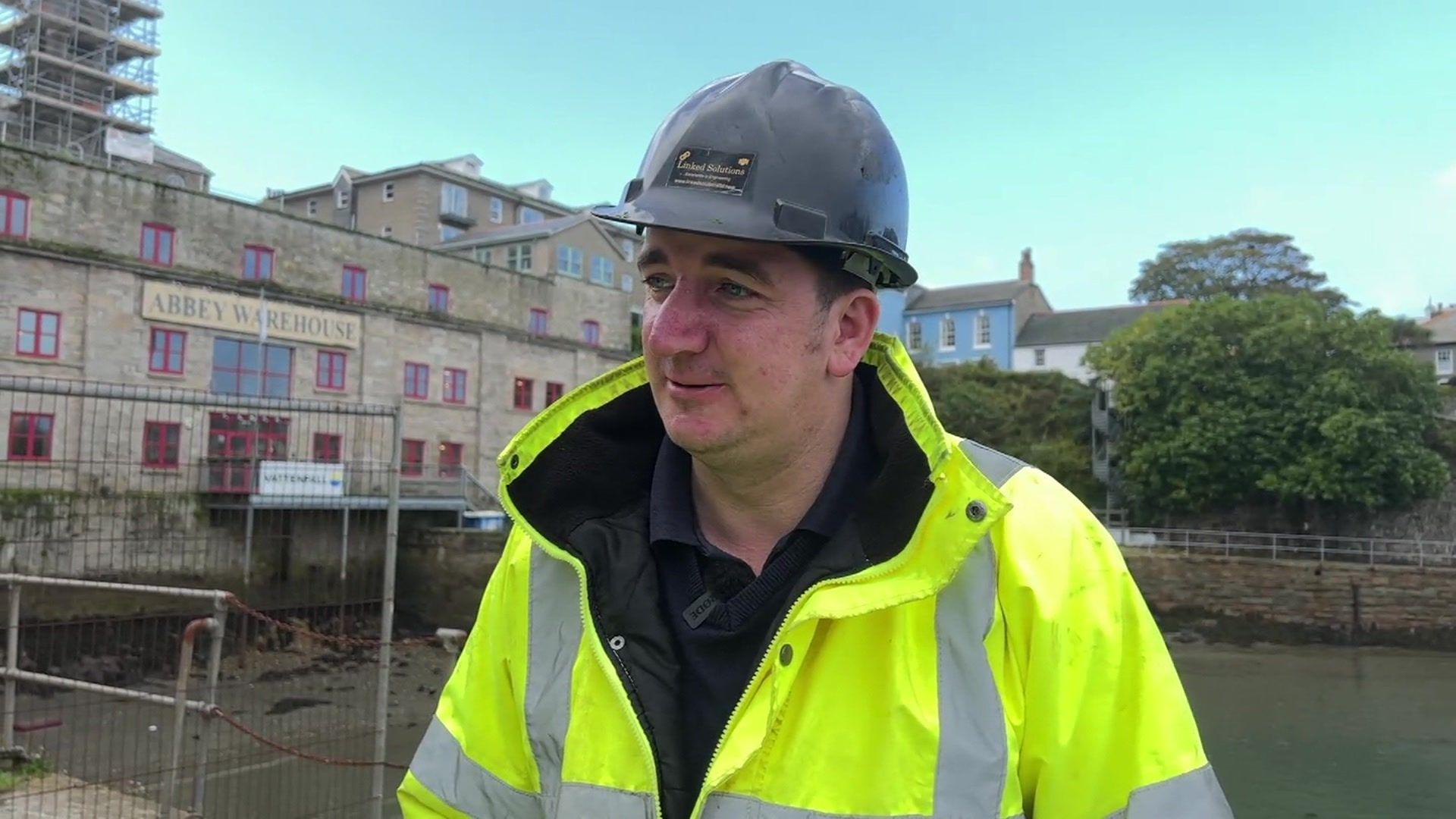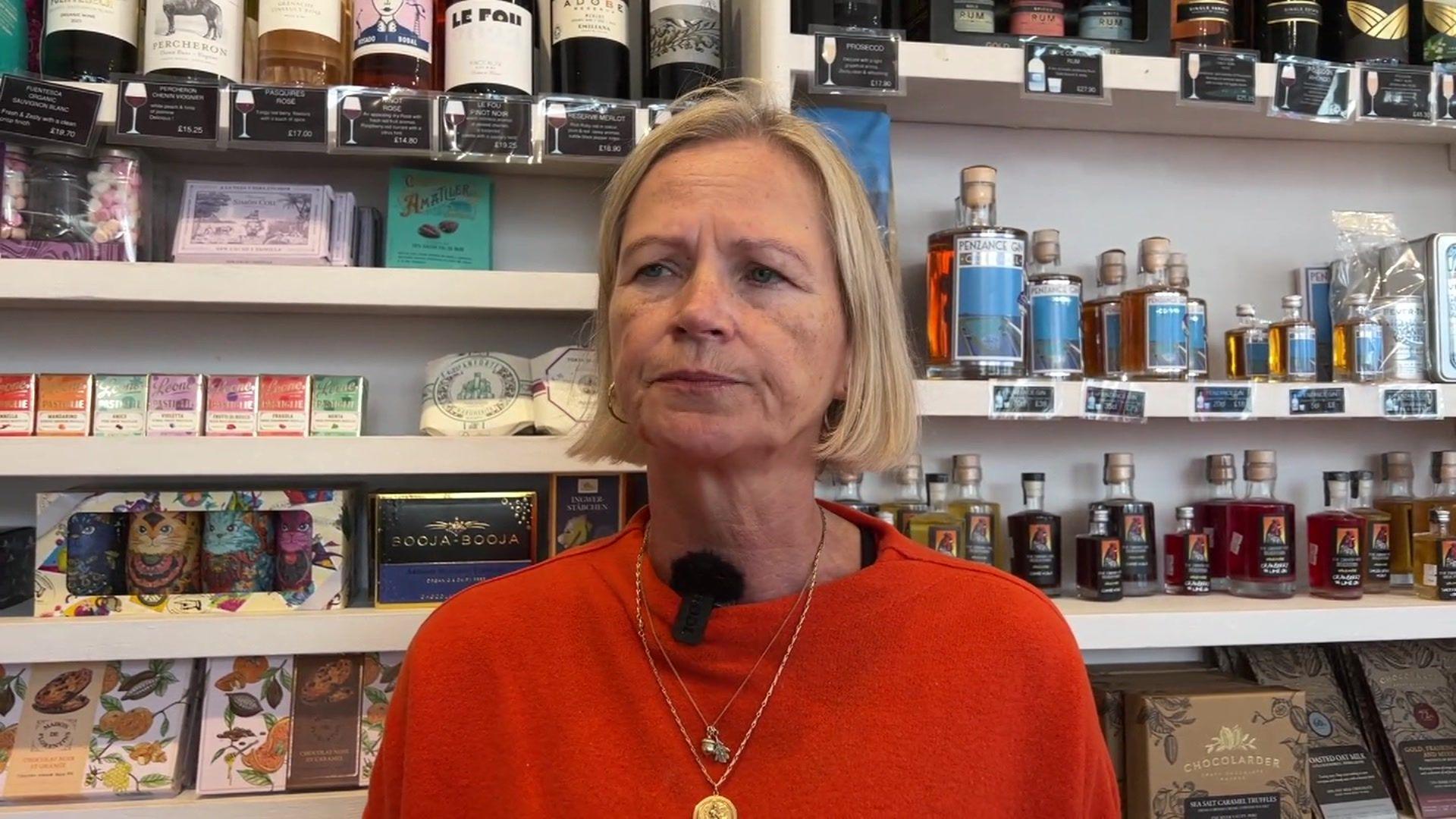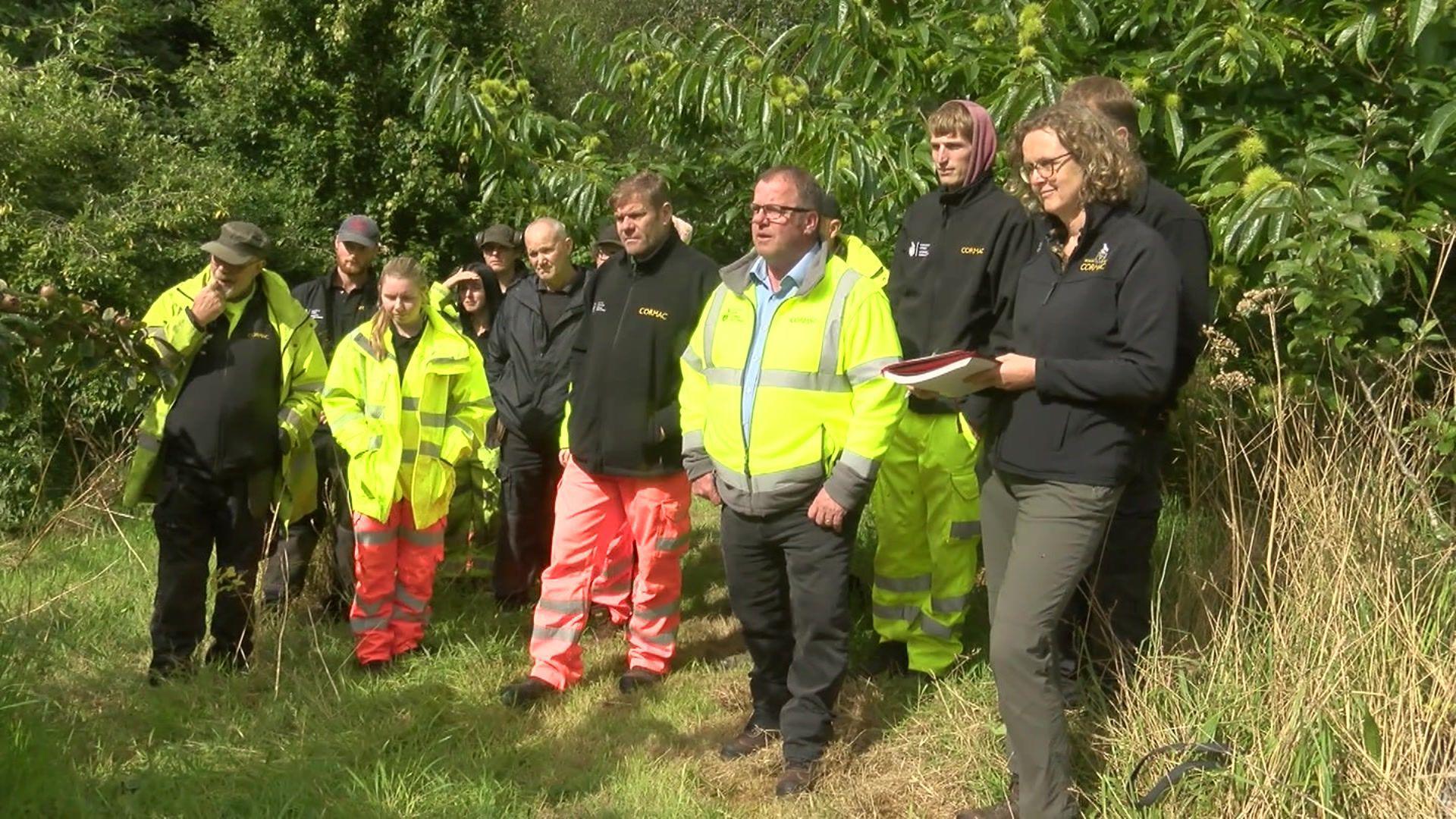Concern Cornwall could lose prosperity funding pot

The dry dock is just one project to have benefited from Shared Prosperity Funding
- Published
Cornwall is facing uncertainty over the future of a government funding pot deemed "absolutely vital" by businesses.
The county has been receiving substantial targeted funding to support its underperforming economy for 25 years.
Funding came first from the European Union and then, post-Brexit, from the government’s Shared Prosperity Fund. But that could be over as the latest funding period ends in April and it is entirely unclear as to what - if anything - will replace it.
April is also the deadline for all the existing money to be spent, unless the government extends that spending window, so it is feared some currently funded projects could see their money taken away and handed back to Whitehall.
Call for support
Sitting across the road from the Scillonian ferry on Penzance quayside, Europe's oldest dry dock has seen some ups and downs during its 200-year history.
Now it is definitely on the up with ambitious plans to expand and build ships for the first time ever.
Owner Jamie Murphy said a £2m award from the Shared Prosperity Fund had been essential to making it happen.
He said: "It's been absolutely vital – there's not many single privately-owned shipyards left in this country. High street banks simply do not support the sector.
"In a post-Brexit Cornwall, there wasn't any funding left for projects like this."

Mr Murphy said the Shared Prosperity Fund had been vital to keep up with the shipyard's ambitious plans
It is one of 142 projects across Cornwall to have benefited from a total of £137m of Shared Prosperity Funding.
If the present government chooses not to continue with it in some form, it will be the first time in a quarter of a century that Cornwall has not received substantial specific financial support, which Mr Murphy said would be a major blow.
"The fund absolutely needs to be replaced," he added.
"This is the only industrial element in Penzance left now and we have to rejuvenate and get ready for what's around the corner."
'Hard out there'
Small businesses in Cornwall which make up the backbone of the economy are particularly concerned.
Sarah Shaw, who runs The Hen Deli in Penzance, said it was "very hard out there" for small business owners.
"For my business, the milk cost, cheese cost, butter cost, butter keeps going up and up," she said.
"We can't pass on the increases to the customers, so we take the hit... my worry is it’s small businesses that get hit again.
"My plea ahead of the budget is please don't target small businesses because then you haven't got a world that keeps going round and round, and you need to keep England going round."

Ms Shaw said business costs just keep "going up and up"
Their great anxiety is around business rates.
Labour has promised to scrap business rates altogether and replace them with something fairer.
In the short term - at the very least - the sector is desperate for the chancellor to extend the substantial business rate relief for small businesses introduced by the last government and due to expire in April.
The government's repeated refusal to to rule out an increase in National Insurance contributions for employers also concerns them.
Tourism businesses have long campaigned for a lower rate of VAT on hospitality - already the case in many other European countries.
Labour's first Budget for 14 years will be delivered by Chancellor Rachel Reeves on Wednesday 30 October.
Budgets are always big events in the political calendar, but this one feels bigger than most.
And, of course, Prime Minister Kier Starmer has already warned it will be painful.
Follow BBC Cornwall on X (formerly Twitter), external, Facebook, external and Instagram, external. Send your story ideas to spotlight@bbc.co.uk, external.
- Published10 September 2024

- Published18 November 2023

- Published14 October 2024
